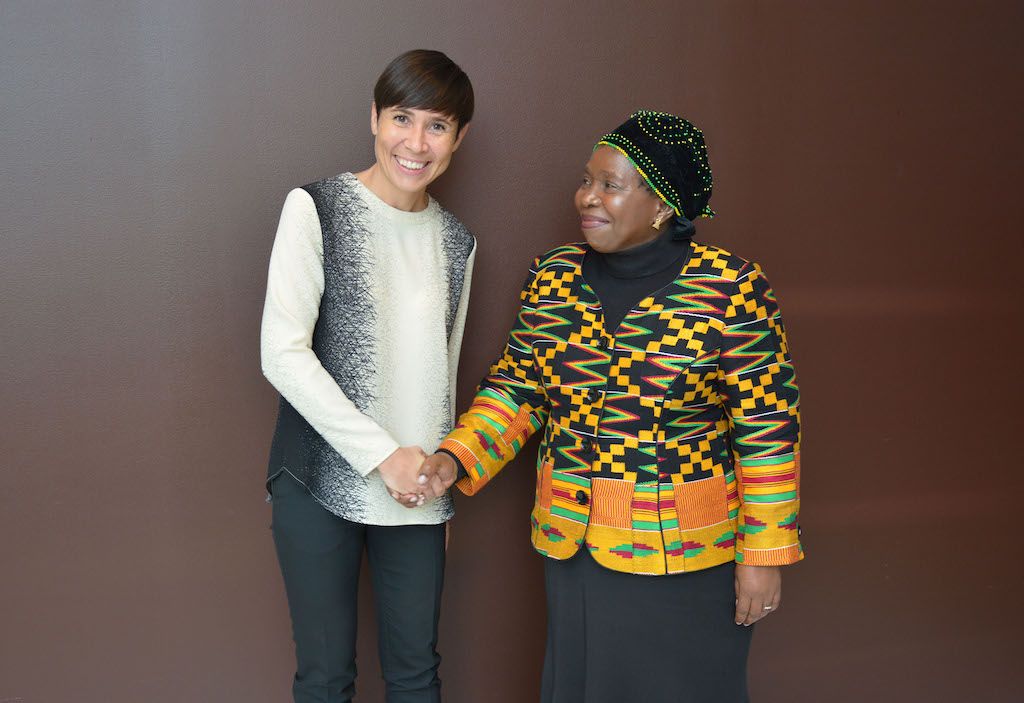Dr Dlamini Zuma opening remarks at the Blue Economy meeting with the Norwagean Foreign minsiter HE Morten Hoglund in Oslo, Norway
Dr Dlamini Zuma opening remarks at the Blue Economy meeting with the Norwagean Foreign minsiter HE Morten Hoglund in Oslo, Norway











